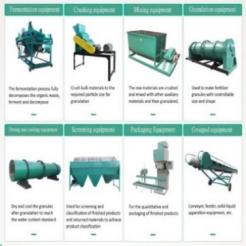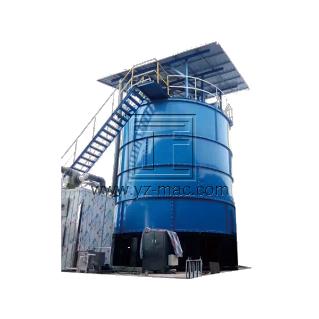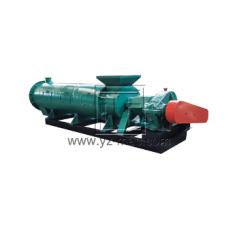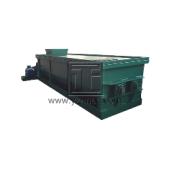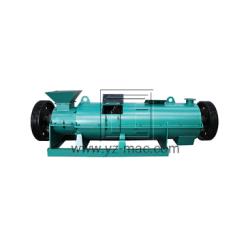Roller granulator
A roller granulator, also known as a roller compactor or pelletizer, is a specialized machine used in the fertilizer industry to transform powdered or granular materials into uniform granules. This granulation process improves the handling, storage, and application of fertilizers, ensuring precise nutrient distribution.
Benefits of a Roller Granulator:
Enhanced Granule Uniformity: A roller granulator creates uniform and consistent granules by compressing and shaping powdered or granular materials. This ensures a standardized size, shape, and density of the granules, facilitating even nutrient distribution in fertilizers and promoting optimal plant uptake.
Improved Handling and Application: Granulated fertilizers produced by a roller granulator are more durable and less prone to dust generation during handling and transportation. The uniform size and shape of the granules allow for easy spreading, precise application, and reduced nutrient losses, resulting in more efficient fertilization practices.
Controlled Nutrient Release: Roller granulation allows for the incorporation of additives, coatings, or encapsulated materials within the granules. This enables controlled release of nutrients over time, providing plants with a steady supply of essential elements and minimizing nutrient leaching or volatilization.
Versatility in Formulations: Roller granulators can accommodate a wide range of raw materials, including various types of fertilizers, organic materials, and additives. This versatility allows for the production of custom fertilizer formulations tailored to specific crop requirements, soil conditions, and target yield goals.
Working Principle of a Roller Granulator:
A roller granulator typically consists of a feed hopper, two or more counter-rotating rolls, a scraper or knife system, and a discharge chute. The powdered or granular material is fed into the gap between the rolls, which exert pressure and compact the material into denser strands or ribbons. The compacted strands are then broken into granules of the desired size by the scraper or knife system. The granules are collected through the discharge chute for further processing or packaging.
Applications of Roller Granulators:
Fertilizer Production: Roller granulators are extensively used in the fertilizer industry for the production of granular fertilizers, including compound fertilizers, organic fertilizers, and specialized blends. The granules produced are uniform, easy to handle, and compatible with various application methods such as broadcasting, topdressing, and precision placement.
Agriculture and Horticulture: Granulated fertilizers produced by roller granulators find wide application in agriculture, horticulture, and greenhouse cultivation. They provide a reliable source of nutrients for crops, ensuring optimal growth, improved yield, and sustainable soil fertility management.
Environmental Remediation: Roller granulation technology is also applied in environmental remediation projects. It can be used to encapsulate or immobilize hazardous or contaminated materials, transforming them into stable granular forms for safe disposal or reuse.
Chemical and Pharmaceutical Industries: Roller granulators have applications beyond fertilizer production. They are utilized in the chemical and pharmaceutical industries for granulating various powdered materials, such as catalysts, detergents, pharmaceutical powders, and powdered additives.
A roller granulator plays a crucial role in fertilizer production by transforming powdered or granular materials into uniform and durable granules. The benefits of using a roller granulator include enhanced granule uniformity, improved handling and application, controlled nutrient release, and versatility in formulations. Roller granulators find applications in fertilizer production, agriculture, horticulture, environmental remediation, and the chemical and pharmaceutical industries. By adopting roller granulation technology, fertilizer manufacturers can produce high-quality granular fertilizers that contribute to efficient nutrient management, sustainable agriculture practices, and environmental stewardship.



